Source: Cuba: Network in Defense of Humanity / Vibromancia / The Dawn News /
September 19 2017
 The Principles of Good Living are ingrained in the Constitutions of Bolivia and Ecuador, and were inspired by the knowledge of ancestral cultures of the region, like the Aymara, Quechua and Guarani people.
The Principles of Good Living are ingrained in the Constitutions of Bolivia and Ecuador, and were inspired by the knowledge of ancestral cultures of the region, like the Aymara, Quechua and Guarani people.
 Good Living is a philosophy promoted by Andean governments of South America, pioneered by Evo Morales (Bolivia) and Rafael Correa (Ecuador). It goes back to the roots of ancestral cultures of the region and posits a model for human life in harmony with nature.
Good Living is a philosophy promoted by Andean governments of South America, pioneered by Evo Morales (Bolivia) and Rafael Correa (Ecuador). It goes back to the roots of ancestral cultures of the region and posits a model for human life in harmony with nature.
A platform for intercultural thought
It considers human beings to be second to the environment. It is neither socialism (which prioritizes the needs of humankind) nor capitalism (whose priorities are money and profit).
This line of thought was initiated by the Kichwa peoples of the Pastaza river in the late 1990s, as a proposal to organize their way of life and the bases of their relation to the territory, according to their cosmovision. Nowadays, this current integrates the cosmovisions of many cultures. Therefore, Good Living can be understood as “a platform for intercultural thought that is under construction, and which is intended to build alternatives to development in the future”.
The principles of Good Living are woven into the Constitutions of Bolivia and Ecuador as Constitutional principles, which is a novelty in the world in terms of institutional organization.
These are the 25 principles of Good Living:
Prioritizing life: Good Living is life in community, where every member cares for all the others. The most important thing is not the human being (as socialism posits) nor money (as capitalism posits) but life. Its goal is a simpler life, the way of harmony with nature and life.
To reach agreements in consensus: Good living is seeking consensus between everyone. People might have think differently, but through dialogue we must seek a neutral point where everyone agrees without conflict. It’s about deepening democracy, because there’s also submission in democracy and “submitting the neighbour is not living well”.
Respecting differences: Good living is respecting the neighbour, being able to listen to everyone who wants to speak, without discrimination or some form of submission. We don’t posit tolerance but respect, because each culture or region has a different way of thinking, and in order to live will and in harmony we need to respect those differences. This doctrine includes all beings inhabiting the planet.
To live in complementarity: Good living is prioritizing complementarity between all beings. In communities, children complement grandparents, man complements woman, and so on. Plants and animals complement the existence of human beings and help them survive.
Balance with nature: Good living is leading a life in balance with all beings. Like democracy, justice is also considered discriminative, because it only considers people and not the most important principle: harmony between human beings and nature. Good living aspires to a society with equality and without exclusion.
Defending identity: Good living is valuing and recovering identity. It implies fully enjoying life based on values that have endured for over 500 years and which have been transmitted by families and communities who lived in harmony with nature and the cosmos. One of the main goals of Good Living is recovering unity between all peoples.
Accepting differences: good living is respecting similitudes and differences between the beings that inhabit the planet. It goes beyond the concept of diversity. It also means that equal or different beings should never harm each other.
Prioritizing cosmic rights: good living means prioritizing cosmic rights before human rights. When the Government speaks of climate change, it’s also referring to cosmic rights. Therefore, it is more important to speak about the rights of Mother Earth than about the rights of human beings.
Knowing how to eat: Good Living is knowing how to eat, and combining proper foods according to each season of the year. This principle is based on the elders, who based their diet on one particular product for each season. Knowing how to eat guarantees health.
Knowing how to drink: Good living is drinking alcohol moderately. In indigenous communities, each celebration has a meaning, and alcohol is present in celebrations, but it must be consumed without exaggeration and without harming others. Knowing how to drink in community doesn’t mean going to a bar and poison ourselves with alcohol until we kill our neurons.
Knowing how to dance: Good living is knowing how to dance, which is not just shaking the body. Dance is related to specific events like sowing or harvesting. Communities still honor the Pachamama with dance and music, especially in agricultural cycles, however, native dances are considered just folklore in the cities. In the new doctrine, dance will recover its true meaning.
Knowing how to work: Good living means considering work as a celebration. Unlike capitalism, where work is considered a burden, the new model recovers the ancestral way of looking at work as a celebration. It is a way of growing as a person, therefore in indigenous cultures people work since they are children.
Recover the Abya Laya: Good living is promoting peoples to come together in a big family. This means for the regions of the country to form what was formerly known as Abya Laya—a big community. This should extend to all countries. It is considered a good sign that some presidents are trying to unite all the peoples.
Recover agriculture: Good living is reincorporating agriculture to communities and recovering forms of life in community, like working the land and cultivating products to provide for the basic needs of everyone.
Knowing how to communicate: Good living means knowing how to communicate, and recovering the communication that ancestral communities had. DIalogue is the result of this good communication: speaking among us like our parents used to, and solving problems without generating conflicts.
Social control: Good living means that inhabitants control the public affairs of the community. It differs from the concept of social participation, which reduces the amount of true participation of the people. in ancestral times, everyone controled the roles of their main authorities.
Working reciprocally: Good living is recovering the reciprocity of work in the communities. In some indigenous peoples, this practice is called ayni, which is nothing more than giving back, in the form of work, as a way to thank for the help provided by a family in an agricultural task, such as sowing or harvesting.
Not stealing and not lying: Ama sua and ama qhilla, in quechua language. It is fundamental for communities to respect these principles to maintain the wellness and trust between its inhabitants.
Protecting seeds: so that we don’t need transgenic products in the future. preserving ancestral agricultural abundance through the creation of seed banks to avoid using transgenic seeds and chemicals, which destroys thousand-year seeds.
Respecting women: because they represent the Pachamama, Mother Earth, the giver of life and the protector of its fruits. Woman is valued and present in all of the activities related to life, upbringing, education and culture.
Good living, NOT better living: Good living does not mean living better, in capitalistic terms. Living better is related to egotism, individualism lack of interest in others. The capitalist doctrine promotes the exploitation of people in order to concentrate wealth in just a few hands, while Good Living aims for a simple life with balanced production.
Recovering resources: Recovering the natural abundance of the country and allowing everyone to benefit from it in a balanced an equitative manner. It also includes nationalizing and recovering the strategic companies of the country in a framework of balance and coexistence between humankind and nature.
Exercising sovereignty: reaching a common consensus that defines and builds unity and responsibility in favor of the common good, without excluding anyone. In this context, communities and nations will build a sovereign nation that will be administered in harmony between individuals, nature and the cosmos.
Protecting water: rationally distributing water and using it correctly. Water is the vital liquid of the beings that inhabit the planet, so we must value it and preserve it as much as possible.
Listening to the elderly: reading into the wrinkles of the old to find the right path.One of the main sources of knowledge are the elderly of the community, who treasure the stories and customs that erode with the passing of time. Our elders are walking wisdom, so we must always learn from them.
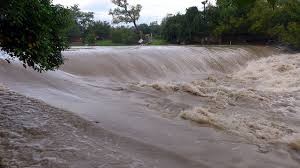 Addis Ababa — EXTENSIVE flooding has displaced more than 93 000 people in crisis-torn Ethiopia. The Ambeira zone in Afar region, special zones surrounding the capital Addis Ababa , Jima, South-east Shewa and South-west Shewa in the Oromia region have been worst affected by the incessant rains. It is estimated that a total of 18 628 households have been affected in the East African country.
Addis Ababa — EXTENSIVE flooding has displaced more than 93 000 people in crisis-torn Ethiopia. The Ambeira zone in Afar region, special zones surrounding the capital Addis Ababa , Jima, South-east Shewa and South-west Shewa in the Oromia region have been worst affected by the incessant rains. It is estimated that a total of 18 628 households have been affected in the East African country.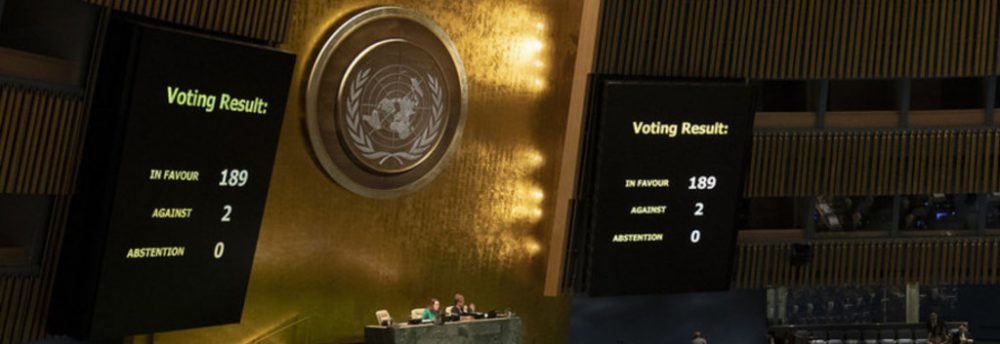


 “We condemn any action that disturbs peace, tranquility, and democratic stability… and that threatens sovereignty, including the recent threats of a possible foreign military intervention,” the jointly signed document read, that was read by Cuba’s ambassador to the Council, Pedro Luis Pedroso.
“We condemn any action that disturbs peace, tranquility, and democratic stability… and that threatens sovereignty, including the recent threats of a possible foreign military intervention,” the jointly signed document read, that was read by Cuba’s ambassador to the Council, Pedro Luis Pedroso. Also read during the session was a declaration by the Bolivarian Alliance for the People of Our America (ALBA) that echoed the calls for respect of sovereignty and territorial integrity in Venezuela. Presented by the Nicaraguan ambassador, Hernan Estrada, ALBA repudiated the “international media campaign” against Venezuela and condemned the recent threats of the United States President Donald Trump in his address to the United Nations General Assembly.
Also read during the session was a declaration by the Bolivarian Alliance for the People of Our America (ALBA) that echoed the calls for respect of sovereignty and territorial integrity in Venezuela. Presented by the Nicaraguan ambassador, Hernan Estrada, ALBA repudiated the “international media campaign” against Venezuela and condemned the recent threats of the United States President Donald Trump in his address to the United Nations General Assembly. The Venezuelan representative to the council, Jorge Valero, also spoke, expressing solidarity to those countries who support Venezuela’s sovereignty and saying that “peace reigns” in his country due to the democratic National Constituent Assembly.
The Venezuelan representative to the council, Jorge Valero, also spoke, expressing solidarity to those countries who support Venezuela’s sovereignty and saying that “peace reigns” in his country due to the democratic National Constituent Assembly.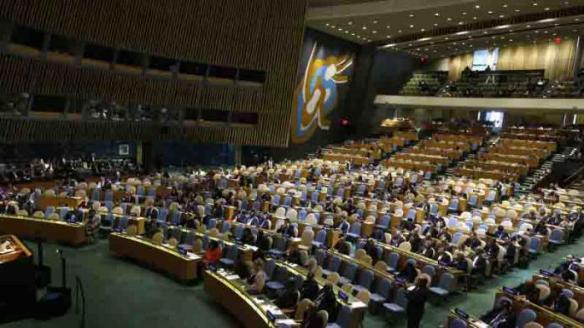 Photo: TELESUR
Photo: TELESUR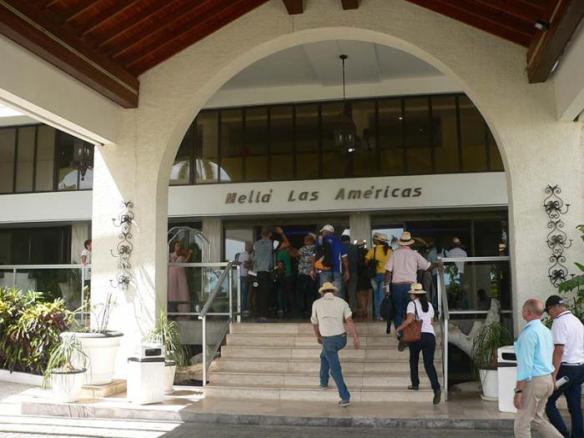
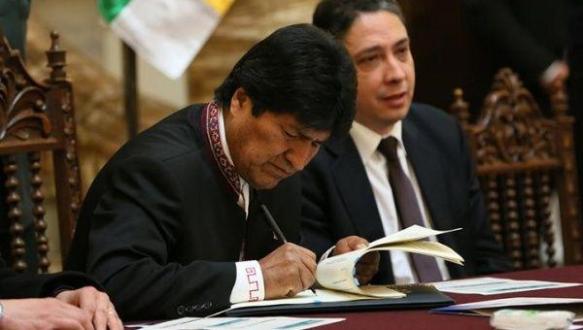
 Photo: Cubaminrex
Photo: Cubaminrex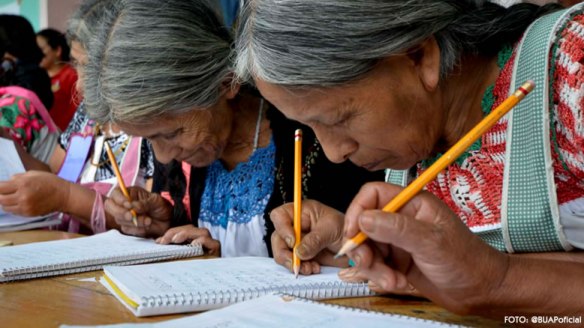 In nine years, the number of persons in Panama able to read and write increased by 70,794, thanks to the Cuban Literacy Program ”Yo Si Puedo ” (Yes, I Can), according to a report from the country’s Department of Social Development.
In nine years, the number of persons in Panama able to read and write increased by 70,794, thanks to the Cuban Literacy Program ”Yo Si Puedo ” (Yes, I Can), according to a report from the country’s Department of Social Development. Created by the late Cuban teacher and writer, Leonela Relys, the internationally renowned literacy program “Yes I Can,” has benefited 9,8 million persons in different languages.
Created by the late Cuban teacher and writer, Leonela Relys, the internationally renowned literacy program “Yes I Can,” has benefited 9,8 million persons in different languages. The Principles of Good Living are ingrained in the Constitutions of Bolivia and Ecuador, and were inspired by the knowledge of ancestral cultures of the region, like the Aymara, Quechua and Guarani people.
The Principles of Good Living are ingrained in the Constitutions of Bolivia and Ecuador, and were inspired by the knowledge of ancestral cultures of the region, like the Aymara, Quechua and Guarani people. Good Living is a philosophy promoted by Andean governments of South America, pioneered by Evo Morales (Bolivia) and Rafael Correa (Ecuador). It goes back to the roots of ancestral cultures of the region and posits a model for human life in harmony with nature.
Good Living is a philosophy promoted by Andean governments of South America, pioneered by Evo Morales (Bolivia) and Rafael Correa (Ecuador). It goes back to the roots of ancestral cultures of the region and posits a model for human life in harmony with nature. As such, listed below are bank accounts in Cuban National Pesos (CUP) and Cuban Convertible Pesos (CUC) that have been opened for Cuban residents to make deposits:
As such, listed below are bank accounts in Cuban National Pesos (CUP) and Cuban Convertible Pesos (CUC) that have been opened for Cuban residents to make deposits: